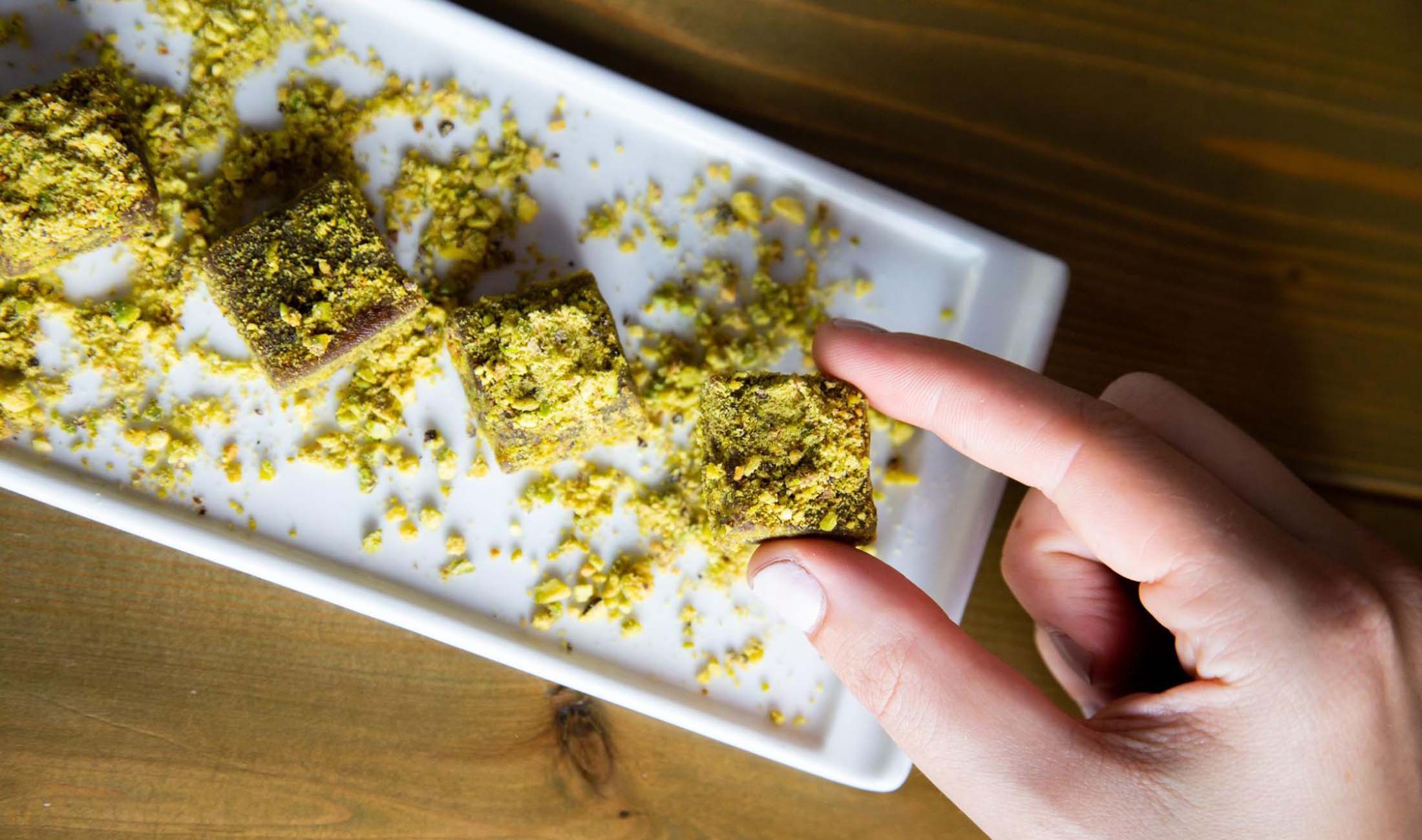Why Mindful Eating Matters
Aug 08thWhen was the last time you ate quietly, chewing slowly and truly savoring your food? In this article, Divya covers the importance of mindful eating and why poor eating habits can negatively affect your health.
- SHARE:

It’s a Matter of Health
(Adapted from Divya’s book What to Eat for How You Feel)
You can have the healthiest, local, seasonal, organic, freshly picked, properly combined food on your table but, if you eat at the wrong time, in the wrong way or the wrong quantity, your meal can have some unintended, unhealthy effects.
A lot of us experience digestive problems because of unnatural eating habits. Long-term indigestion can lead to nutrient deficiencies and toxic buildup, which in turn can cause blockages, overweight, unwanted deposits such as calcium in the joints or plaque in the arteries or growths like cysts and tumors. According to Ayurveda, almost every physical illness can be traced back to indigestion.
In addition, our digestive system is designed to absorb not only the chemical elements of the food, but also its subtle energies. Unnatural eating habits severely limit our ability to absorb these health-giving, life-sustaining energies.
Here are some simple, enjoyable things you can do to support strong digestion, along with the possible consequences of the opposite behavior. Please upgrade your eating habits lovingly. Feeling guilty, being rigid with yourself, or enforcing healthy eating on those you dine with is not so healthy.
| How to Eat | What Happens if You Don’t |
| In a settled, harmonious environment free of distractions | Eating with noise, too many people, or too much movement around, or while watching TV, reading, or driving interrupts the brain-stomach communication, which disturbs digestion |
| In a peaceful state of mind | Eating when you’re angry, upset, sad or stressed out will only feed those negative emotions and cause them to flare up |
| In a seated position | When you stand or walk, your energy concentrates on your feet, to support you, and thus weakens your digestive strength |
| Only when you are hungry | A lack of hunger means your digestive fire is slumbering and won’t break down the food properly, thus potentially leading to fatigue, toxin build up and becoming overweight |
| At a moderate pace, neither too fast nor too slow, with thoughtful chewing | Devouring unchewed or partially chewed food puts extra pressure on the stomach |
| At an interval of two to four hours after a light meal, four to six hours after a full meal; this lets one meal be digested completely before the next (light snacks such as raw fruit or a few soaked nuts are okay) | Binging and eating heavy snacks between meals doesn’t allow your digestive system to get a break and can lead to toxic buildup and obesity |
| Allow at least two to three hours between your dinner and going to bed | Going to bed right after eating is a recipe for toxicity, weight gain and morning sluggishness |
| Without drinking a lot of water or ice-cold beverages. Drink water no less than thirty minutes before a meal and sixty to ninety minutes after a meal. It is okay to sip a little warm water or digestive tea with your meal, especially if your food is dry | Drinking a large glass of water right before, during, or right after a meal tremendously suppresses your digestive fire |
| To only two-thirds to three-quarters of your capacity—a first burp is an indication to stop | Overeating leaves no room for the food in the stomach to move and break down properly and thus becomes one of the main causes of illness |
| At regular times | Eating at different times every day will negatively affect your body rhythms |
| With gratitude for the food you receive and praise for the cook | Eating without respect for the food or for those who prepared it sets up negativity and disconnection from nature and people—yet another cause for feeling unwell |
| Remaining seated for a few minutes after completing your meal | Rushing through a meal and jumping up from the table will feed your stressors more than your body |
Creating New Habits
If you’re inspired by these suggestions, I recommend introducing them only one or two at a time. It can be hard to change old habits and taking a gentle, patient approach is often the most effective. Not only will your new habits improve your digestion, they’ll make eating much more enjoyable.
More Articles

5 Ayurvedic Tips for Air Travel
Ayurvedic guidelines for staying healthy and balanced before, during and after traveling by plane.

How to Ground Yourself in Difficult Times
In this article, we share simple self-care practices that will keep you steady, healthy and engaged during challenging moments.

Managing Your Sweet Tooth
Ayurveda tells us that there’s room for sugar in a healthy diet, but it’s important to choose wisely. The key: Enjoy sweets in moderation and seek healthier alternatives when possible.

5 Fun Facts about Divya
You know Divya as a chef, author, and teacher. But do you know what makes her tick? Today, we present some fun, lesser known facts about our founder.








